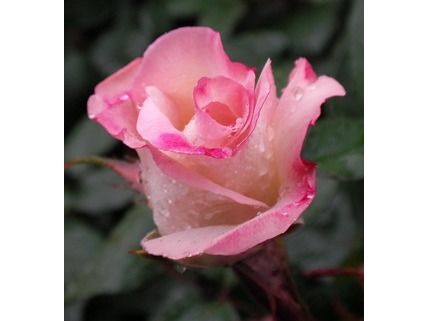Approved by curator

Added: Aug 22, 2022
Last edited: Apr 11, 2023
The company Like a Bird developed three unique types of textiles, which are claimed to significantly contribute towards the movement of a more sustainable production mindset.
Rose Viscose made of recycled cotton paired with viscose fibres from organically grown roses, Coffee Carbon produced from liquefied coffee grounds and combined with cotton, and Ginger Fiber consisting of 95% ginger fiber and 5% recycled elastane - these examples clearly show that with the help of technological innovations and developments, high proportion of organic matter in textile is possible.
Most of the textiles originate from two materials, or polymers. One is cellulose, a natural fiber found in cotton, and polyester. Blended together, they make it rather difficult to be recycled at the end stage, thus often ending up at landfills. The fabrics that are made from 100 per cent degradable material like cotton, linen, silk, hemp are recycled into a compost, or upcycled into a value-added product.
The company Like a Bird seems to have found three innovative solutions to manage this challenge in Germany.
Rosenviskose (eng. rose viscose) is produced from leaves and stems being wound up in an energy- and water-saving manner and processed in combination with cotton into a woven yarn, which altogether turns into a fabric in Portugal. The material, according to the producer, "feels silky delicate like a rose petal and smells of roses". A very special and remarkable feature is that the fiber is compostable and can be returned to the ecological cycle without residues.The goods are to wash at 30°C, and light ironing is to be applied.
Kaffeekarbon (eng. coffee carbon) is a special substance obtained from waste from the coffee industry. Here, a waste product is sensibly recycled and sustainably upgraded by using it as a durable textile. For the production of this innovative fiber, the coffee grounds are liquefied and combined with cotton. After that, it is spun into a yarn. The special properties of the material are its soft touch and slightly mottled coloring. Besides, the goods produced from this fabric offer UV protection. Other advantages are claimed to be that "it dries quickly and has a deodorizing effect".
Ingwer-Faser (eng. ginger fiber) consists of 95% ginger fiber and 5% recycled elastane. Through technological innovations and developments, this high proportion of organic matter is possible. The manufacturer produces this fiber with renewable energies. At first, the fabric feels cooling on the skin, able to absorb moisture and convert it into heat, which is why textiles made of this fibre are ideally suited as winter or transitional clothing. The producer claims that the "soft fabric nestles against the skin and offers pleasant wearing comfort".
Like a Bird is the first supplier in Germany to create sophisticated women's fashion from the innovative fabrics that respects planetary boundaries and circularity principles.
Picture sourced from flickr.com
Author: meimie

Ecological Impact
Economic Impact
Innovation
Reduce Material Consumption (SDG12)
Save Water (SDG6)
Reduce Energy Consumption
Prioritise regenerative resources [Textiles]
Regenerative materials [Textiles]
Non-critical materials and inputs [Textiles]
innovative fabrics
organic textiles
